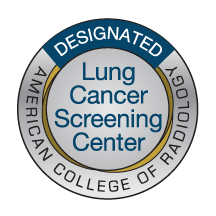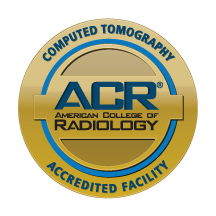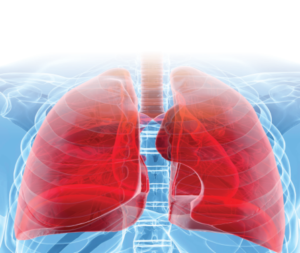Lung cancer is the second most common type of cancer to develop in both women and men. (The most common are breast and prostate cancer respectively.) Robert Sprague, MD, who is affiliated with both Southern New Hampshire Radiology Consultants and the Department of Radiology at Elliot Health System, is sharing advice about lung cancer. He also explains screening treatments options, including low dose computed tomography (CT) screening for lung cancer.
Who is at risk for lung cancer?
The biggest risk factor for developing lung cancer is SMOKING. Most patients are diagnosed after the age of 65. A very small number of patients will develop lung cancer before the age of 45.
Is it important to detect lung cancer early?
Absolutely! The earlier cancer is detected, the less chance that the cancer will have spread to lymph nodes or other organs. Finding cancer early increases effective treatment options and offers the best chance for survival.
Is there a screening test for lung cancer?
Yes! Low dose CT is an approved screening test for lung cancer. For patients who meet the eligibility requirements, this test is fully covered by private insurance, Medicare, and Medicaid.
Am I eligible for low dose CT lung cancer screening?
To qualify for low dose CT lung cancer screening, patients must meet the following eligibility requirements:
- A minimum of a 30-pack year smoking history (1 pack of cigarettes a day for 30 years or 2 packs of cigarettes a day for 15 years.)
- Patient is a current smoker or quit smoking within the past 15 years
- Patient is between the ages of 55 to 76 (screening eligibility ends when patients turn 77)
- Currently have no symptoms of lung cancer
How is the test performed?
Low dose CT lung cancer screening is a quick and safe examination. The test is performed without contrast so there is no needle stick. The amount of radiation used is significantly less than most routine CT exams. The radiation exposure is similar to that experienced on a flight from Boston to Los Angeles.
Do I need to meet with my doctor first?
Before you have your first low dose CT lung cancer screening you will need to meet with your health care provider to together determine if this is an appropriate test for you. Once you have completed this step, you do not need to do this again prior to future screening tests.
How often do I have to get the test?
Similar to mammography, the test should be performed every year in eligible patients. Lung cancer can develop at any time and it is important for eligible patients to continue to be screened annually.
Where can I have the test?
It is important to have the test performed at an American College of Radiology (ACR) accredited center. This ensures your study is performed using recommended techniques and radiation levels, and that your study will be interpreted by a qualified radiologist. Elliot Health System sites are ACR accredited.
Where does The Elliot offer this test?
The test is offered at The Elliot at River’s Edge and at The Elliot’s Londonderry and Bedford sites.
If the test is positive what happens next?
If your test results indicate possible lung cancer, further workup will be required. Your physician will be notified and you will receive a written letter in the mail. All suspicious low dose CT lung cancer screenings performed in the Elliot system will be reviewed by a team of physician experts to determine the best course of action. In some instances, there may be a less suspicious finding that needs a six-month follow up.
If the test is negative what happens next?
Most tests will be negative. You will receive a letter in the mail and your doctor will also receive the results. It is important to remember to schedule your next annual examination.
Does the test find anything else besides lung cancer?
Occasionally. The test is designed to screen for lung cancer, but the test also images the chest, the lower neck, and part of the upper abdomen. Your radiologist may detect other findings that need further evaluation. This information will be given to your doctor and be mentioned in your results letter. It is important to discuss these results with your doctor.



